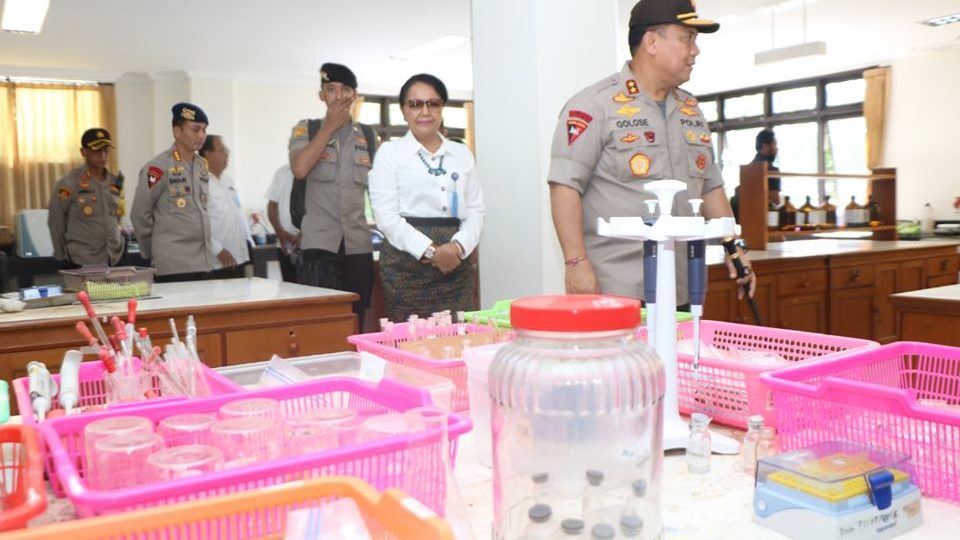Bali Police is working with Udayana University to turn traditional Balinese liquor, known as arak, into disinfectants and hand sanitizers, as supply of the cleaners dwindles amid the COVID-19 pandemic.
Across communities, hand sanitizers and disinfectants are widely regarded as effective tools to fight the novel coronavirus, although experts and the World Health Organization (WHO) are still putting proper hand washing and physical distancing among their primary recommendations in preventing infections.
“Right now, disinfectants and hand sanitizers are very rare and difficult to find for the people. Members of the public are making their own disinfectants with available ingredients, which is also happening because the main chemical ingredients such as alcohol are rare and expensive,” Bali Police Chief, Petrus Golose, said, as quoted in a statement.
The Bali Police handed over 3,000 liters of Balinese arak to be examined by Udayana University yesterday, in the hopes that it can be extracted and turned into 96 percent alcohol, the statement said.
In the past week, authorities have sprayed disinfectants in public areas across the island, including in the capital Denpasar, as part of an effort to curb the spread of COVID-19.
WHO said alcohol and chlorine can be useful to disinfect surfaces, but warned that spraying them all over one’s body will not kill the virus inside the body. In fact, “spraying such substances can be harmful to clothes or mucous membranes,” such as the eyes and mouth.
#Indonesia Please do not spray disinfectants on people #COVID19 #CoronaVirusIndonesia , it may be harmful @KemenkesRI @BNPB_Indonesia #JakartaTanggapCorona #Jakarta #LawanCovid19 @kemenkopmk @Menlu_RI @dinkesJKT @WHOIndonesia pic.twitter.com/zi0jz9BHjf
— N. Paranietharan (@NParanietharan) March 29, 2020
Also Read – Bali gov’t declares state of emergency, restricts access as positive COVID-19 cases almost double





